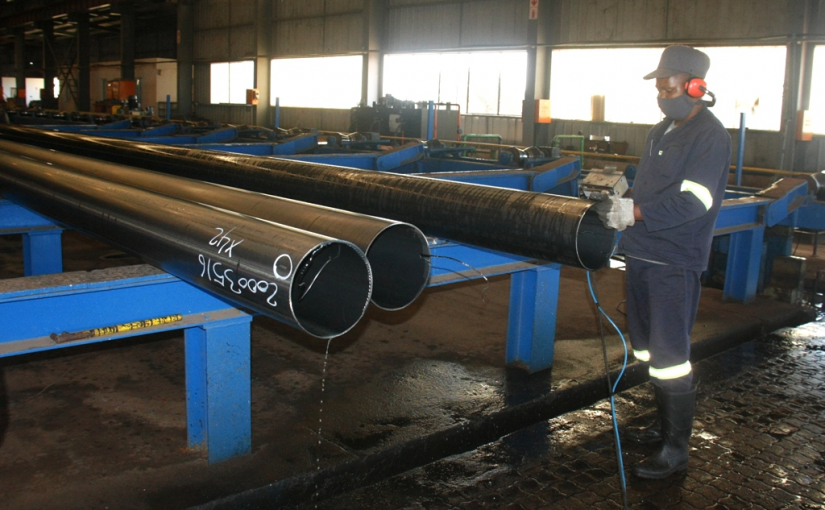Mozambique: Annual inflation slows to 3.96% in July
Survey of Mozambican Manufacturing Firms released – AIM report

FILE - For illustration purposes only. [File photo: AIM]
Mozambique’s manufacturing industry, which continues to play a fundamental role in the country’s economic growth, has stagnated over the last ten years, with signs of decline in several respects.
This is the conclusion of a recent report on the national manufacturing industry conducted by the Ministry of Economy and Finance (MEF) and its partners.
The survey, consulted by AIM on Wednesday and available on the official MEF website, indicates, among the reasons for this phenomenon, that 68% of companies that apply for bank financing have difficulty accessing credit, and face an average interest rate among the highest on the continent.
The authors of the document reached this conclusion based on the assessment of the investment climate and the ‘Mix Market’ instruments used in economic analysis.
This reality exposed in the Survey of Mozambican Manufacturing Firms 2022 , published in June, draws the attention of the executive to the need to renew policies that support economic growth, looking at the manufacturing industry as a true engine of development.
“On the development of the Mozambican productive sector, a key political message is that the sector has had significant difficulties in progressing as desired and contributing to the much-needed economic transformation, industrialization and development in Mozambique. There is no significant evidence of industrialization, despite the long-term focus on supporting industrial enterprises,” the document reads.
The aim of tracking the companies interviewed in the two previous surveys in 2012 and 2017 is to document the evolution of manufacturing companies over the last decade. The IIM 2022 survey found that, of the 831 companies interviewed in 2012, only 355 were still in operation in 2022, the others having closed.
The chapter that analyses the workforce in the sector shows that manufacturing companies have lost around 2,500 jobs in the last 10 years, and it does not seem that they have been replaced by new enterprises, in the context of a country with a very young population.
“This is a worrying trend. Of the total workforce, only 6% of workers are women and, like the total number of workers, this has decreased over time. Naturally, the percentage of female workers has also decreased,” the document states.
The study also reveals that, between 2012 and 2022, the number of companies contributing to the national social security system via the National Social Security Institute (INSS) remained stagnant, a development considered surprising, since one of the government’s priorities has been to expand the reach of the social security system.
As a solution for revitalizing manufacturing industry, the survey proposes reducing the number and costs of licenses and inspections required of companies, deepening value chains to allow companies to specialize and cooperate to increase productivity, improving links to international value chains, as well as trying to understand why the supply of finance for private sector activities is slower to react to the growing demand for credit.
The study urges the authorities to support companies so that they can react in a timely manner to risks, given the likely future occurrence of increasingly frequent and intense extreme events, particularly floods and cyclones.
The survey covered the main urban areas of seven provinces, namely Maputo City, Maputo Province, Gaza, Sofala, Manica, Tete and Nampula.
The survey was implemented in 2022 under the Inclusive growth in Mozambique (IGM) programme with the support from the Finnish Ministry for Foreign Affairs and the Norwegian Ministry of Foreign Affairs.
- To read, download the full report (in English), please click HERE
- To read, download the full report (in Portuguese), please click HERE











Leave a Reply
Be the First to Comment!
You must be logged in to post a comment.
You must be logged in to post a comment.